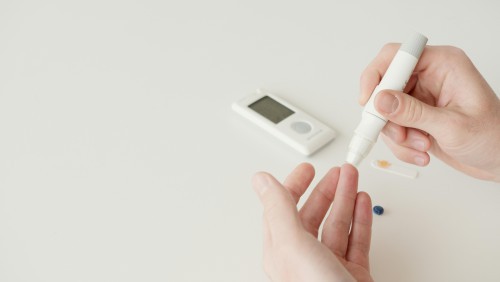Lasting Impact Of Poor Sleeping Patterns or Lack Of Sleep.
Views:1376 |
By:
Alice

Trust me, I understand you are an extremely hardworking citizen, and I know you have deadlines to beat, and time is not on your side. Just like you, I am aware of the tension and many expectations to fit in, in today’s world, and to balance the struggle, you have to trade in your precious sleeping time and rank sleeping as the least of your priority.
But do you know of the risks associated with depriving yourself of some restful sleep? I bet you don’t; otherwise, you would immediately jump to grab that blanket and cover yourself to sleep.
Yes. Sleep deficiency must be considered one of the lifestyle risk factors, along with smoking, drinking, and inactivity.
According to research, if you sleep for fewer than six hours or experience sleep disruption, you have a 48% chance of developing heart disease and a 15% chance of having or passing away from a stroke.
What is Sleep Deprivation?
You are sleep deprived when you do not get adequate sleep.
Types of sleep deprivation.
1. Acute
Occurs when your sleeping pattern is briefly interrupted.
1. Chronic
Occurs when you experience insufficient sleep for a lengthy period
What constitutes inadequate sleep, and how can you tell?
Most adults need 7 to 9 hours of sleep every night.
Even if you often have a restful sleep, you are not new to fatigue and other effects of lost sleep, leaving you to wonder about its lasting impacts on your health.
Some of the lasting effects are:
a. Decreased Fertility
Did you know poor sleeping patterns can lower your libido? Yes, regularly receiving shorter than seven hours of sleep might lead to reduced levels of testosterone and the hormones that cause ovulation.
b. Immune System Deficiency
Your immunity system works best when you get enough sleep. Antibody response decreases when you are sleep deprived.
c. Hypertension
A higher incidence of Hypertension has been linked to fewer than 5 to 6 hours of sleep per night.
d. Stroke & Heart Attack
Heart attacks and strokes make two severe cardiovascular diseases more likely to be caused by lack of sleep.
e. Psychiatric Disorders
Disorientation, paranoia, and hallucinations are some symptoms you might encounter when you are persistent sleep-deprived.
f. Memory Loss
Sleeping is crucial for the brain to organize and transfer information from short-term to long-term memory.
g. Weight Gain & Obesity
When you are sleep deprived, you are more inclined to select diets high in sugar and carbs and hence become obese.
h. Depression & Anxiety
Anxiety and panic attacks can be a common reaction for people struggling with chronic sleep deficiency;
Other Unmistakable signs.
Decreased sex drive
Fatigue
Memory laps
Difficulty paying attention
Lack balance,
Conclusion
Your body requires sleep just as it does air and food to perform at its optimum.
Be warned that chronic sleep deprivation might interfere with your body’s internal systems, resulting in symptoms beyond the ones mentioned above.
End.

 How to Track Irregular Periods
How to Track Irregular Periods  The Shocking Truth About Reversing Diabetes
The Shocking Truth About Reversing Diabetes  What Many Don’t Know: Hormonal Changes in Women in Their 30s and After Birth
What Many Don’t Know: Hormonal Changes in Women in Their 30s and After Birth  How to Cycle Sync Your Periods for Better Health and Balance
How to Cycle Sync Your Periods for Better Health and Balance  Brazilian Waxing and vaginal health, everything you need to know
Brazilian Waxing and vaginal health, everything you need to know